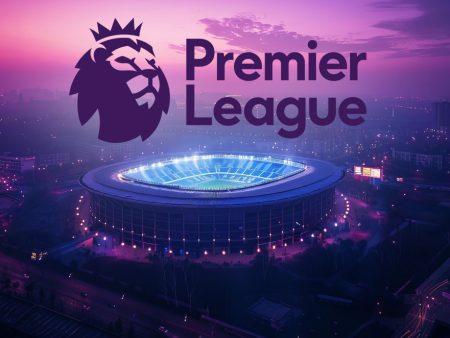The Premier League isn’t just the top division in English football—it’s a global obsession. From last-minute title deciders to nail-biting relegation escapes, every match carries weight. But have you ever wondered exactly how many games are played in a Premier League season? Whether you’re a new fan trying to understand the fixture list or a seasoned supporter debating the maths behind the league table, getting to grips with the season’s structure is essential.
This article breaks down the full format of the Premier League season in 2025: how many games are played, why the structure matters, and how it all ties into the title race, relegation, and European qualification. If you’re following the drama at both ends of the table—from Manchester City chasing another title to newly promoted sides battling to stay afloat—this guide will explain how it all fits together, and why every single one of the 380 matches counts.
Introduction to the Premier League
The Premier League, established in 1992, is the top-flight division of English football. Comprising 20 teams, it operates on a system of promotion and relegation with the English Football League (EFL) Championship. Known for its competitiveness and global appeal, the Premier League attracts top talent and massive viewership worldwide.
Which Teams are Currently in the Premier League?
As of the 2024–25 season, the Premier League features the following 20 clubs:
- Arsenal
- Aston Villa
- AFC Bournemouth
- Brentford
- Brighton & Hove Albion
- Chelsea
- Crystal Palace
- Everton
- Fulham
- Ipswich Town
- Leicester City
- Liverpool
- Manchester City
- Manchester United
- Newcastle United
- Nottingham Forest
- Southampton
- Tottenham Hotspur
- West Ham United
- Wolverhampton Wanderers
Structure of the Premier League Season
Each Premier League season typically runs from August to May. The 2024/25 season, for instance, started on August 16, 2024, and concluded on May 25, 2025. The season is structured to include 33 weekends, four midweek rounds, and one Bank Holiday matchweek, ensuring a balanced distribution of fixtures throughout the campaign.
In a Premier League season, there are a total of 380 games.
Here’s how that works:
- The Premier League consists of 20 teams.
- Each team plays a total of 38 Premier League matches in a season.
- They face every other team twice — once at home and once away (this is called the home-and-away format).
So, the maths is simple:
20 teams × 19 opponents = 380 total matches
Each of the 20 clubs plays 38 matches (19 home, 19 away), but because every match involves two teams, the total number of individual fixtures across the league is:
(20 teams × 38 matches) ÷ 2 = 380 games in a season
This format has remained unchanged since the 1995/96 season, when the Premier League reduced its size from 22 teams to 20.
How Many Games in Premier League Season? The answer is 380 games in a season!
Total Number of Games in a Season
In a standard Premier League season, each of the 20 teams plays 38 matches—19 at home and 19 away. This results in a total of 380 matches over the course of the season. This format has been consistent since the 1995/96 season when the league reduced the number of teams from 22 to 20.

Home and Away Fixtures Explained
The home-and-away format ensures that each team faces every other team twice during the season—once at their home stadium and once at their opponent’s. This system promotes fairness and competitiveness, as teams have equal opportunities to play in familiar and challenging environments.
The Importance of the Title Race
The title race is a central narrative of every Premier League season. Teams compete fiercely for the top spot, with the champion determined by the highest points tally at the end of the season. In the 2024/25 season, Liverpool clinched the title, marking their second Premier League triumph and equaling Manchester United’s record of 20 English league titles.
Understanding Relegation and Promotion
Relegation adds a layer of intensity to the league, as the bottom three teams at the end of the season are demoted to the EFL Championship. In the 2024/25 season, Leicester City, Ipswich Town, and Southampton faced relegation. Conversely, the top teams from the Championship are promoted to the Premier League, ensuring a dynamic and ever-changing league composition.
European Qualification: Champions League and Beyond
Finishing in the top positions of the Premier League not only brings prestige but also qualification for European competitions. The top four teams qualify for the UEFA Champions League, while the fifth-placed team and domestic cup winners may enter the UEFA Europa League or UEFA Conference League. For example, in the 2024/25 season, Liverpool, Arsenal, Manchester City, Chelsea, Newcastle United, and Tottenham Hotspur secured spots in European competitions.
Historical Changes in the League Format
Since its inception, the Premier League has undergone several format changes. Initially featuring 22 teams, the league reduced to 20 teams in the 1995/96 season to alleviate fixture congestion and align with other European leagues. This change standardized the 38-game season format that persists today.
Comparison with Other Top European Leagues
The Premier League’s structure is comparable to other major European leagues. For instance, Spain’s La Liga and Italy’s Serie A also feature 20 teams playing 38 matches each season. However, the Premier League is often lauded for its competitiveness, financial prowess, and global reach, distinguishing it as a premier destination for players and fans alike.
Key Takeaways from the English Premier League Season
- Total Matches: Each team plays 38 matches, culminating in 380 games across the league.
- Season Duration: Typically spans from August to May, with structured breaks and fixture planning.
- Title Race: The team with the highest points at season’s end is crowned champion.
- Relegation: Bottom three teams are relegated to the EFL Championship.
- European Qualification: Top teams earn spots in UEFA competitions based on league and cup performances.
- Historical Consistency: The 38-game format has been in place since the mid-1990s, ensuring stability in the league’s structure.
Understanding the intricacies of the Premier League season enhances appreciation for the drama and excitement that unfolds each year. Whether it’s the battle for the title, the fight against relegation, or the quest for European glory, the Premier League offers a captivating narrative that keeps fans engaged from start to finish.













